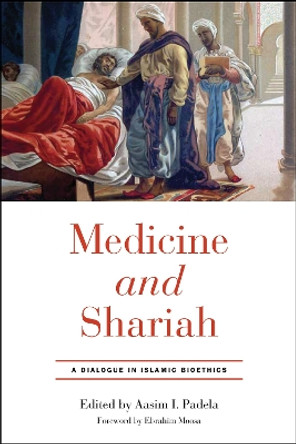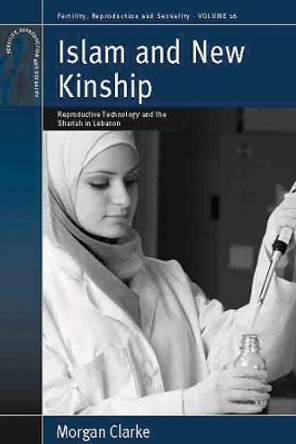Description
Medicine and Shariah brings together experts from various fields, including clinicians, Islamic studies experts, and Muslim theologians, to analyze the interaction of the doctors and jurists who are forging the field of Islamic bioethics.
Although much ink has been spilled in generating Islamic responses to bioethical questions and in analyzing fatwas, Islamic bioethics still remains an emerging field. How are Islamic bioethical norms to be generated? Are Islamic bioethical writings to be considered as part of the broader academic discourse in bioethics? What even is the scope of Islamic bioethics? Taking up these and related questions, the essays in Medicine and Shariah provide the groundwork for a more robust field. The volume begins by furnishing concepts and terms needed to map out the discourse. It concludes by offering a multidisciplinary model for ethical deliberation that accounts for the various disciplines needed to derive Islamic moral norms and to understand biomedical contexts. In between these bookends, contributors apply various analytic, empirical, and normative lenses to examine the interaction between biomedical knowledge (represented by physicians) and Islamic law (represented by jurists) in Islamic bioethical deliberation.
By providing a multidisciplinary model for generating Islamic bioethics rulings, Medicine and Shariah provides the critical foundations for an Islamic bioethics that better attends to specific biomedical contexts and also accurately reflects the moral vision of Islam. The volume will be essential reading for bioethicists and scholars of Islam; for those interested in the dialectics of tradition, modernity, science, and religion; and more broadly for scholarly and professional communities that work at the intersection of the Islamic tradition and contemporary healthcare.
Contributors: Ebrahim Moosa, Aasim I. Padela, Vardit Rispler-Chaim, Abul Fadl Mohsin Ebrahim, Muhammed Volkan Yildiran Stodolsky, Mohammed Amin Kholwadia, Hooman Keshavarzi, and Bilal Ali.
About the Author
Aasim I. Padela is professor of emergency medicine, bioethics, and humanities at the Medical College of Wisconsin. He is also director of the Initiative on Islam and Medicine and co-editor of Islam and Biomedicine.
Ebrahim Moosa is the Mirza Family Professor of Islamic Thought and Muslim Societies at the University of Notre Dame.
Reviews
"Medicine and Shariah fills an important and widely felt gap among Muslims. There have been numerous recent works on Islamic bioethics, but none as far as I am aware that specifically focus on the actual interaction between physicians and jurists. Aasim Padela is one of the foremost medical experts who has brought to the fore practical as well as institutional challenges that face Muslim physicians and patients." -Ovamir Anjum, author of Politics, Law, and Community in Islamic Thought
"The book is well written, striking an academic and balanced tone, which cannot be said of much that passes for Islamic bioethics today. I have no doubt that Aasim Padela will be remembered as a pioneer of our field." -Journal of Islamic Ethics
"This volume is a welcome addition to the growing body of literature on Islamic bioethics." -Journal of the American Academy of Religion
Book Information
ISBN 9780268108373
Author Aasim I. Padela
Format Hardback
Page Count 266
Imprint University of Notre Dame Press
Publisher University of Notre Dame Press
Dimensions(mm) 229mm * 152mm * 16mm








